Beer52 Awards 2020: The Winners
Beer52 Awards 2020: The Winners
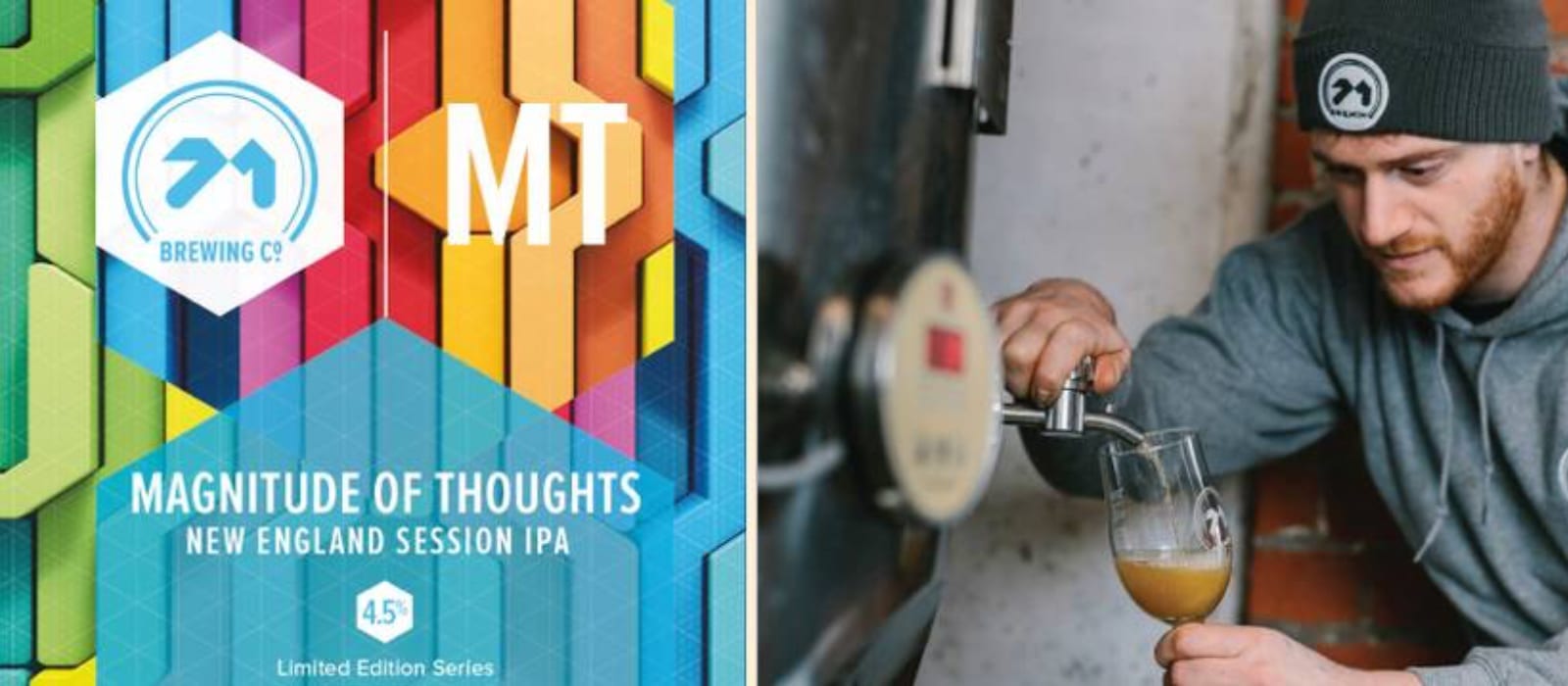
• • • Best IPA • • •
Magnitude of Thoughts – 71 Brewing
We’d love 71 Brewing’s Duncan Alexander to publish a book called “how to start a brewery when everyone is saying there are already too many”. Though the title maybe needs work. Duncan threw in a successful IT career in 2016 to pursue his brewing dreams, and noted the paucity of breweries in his native city of Dundee, which was (and still is) on the up-and-up.
He invested in good kit up-front, and set up in a big, modern space that would support future growth. This is in marked contrast to many craft breweries, which quickly end up bursting at the seams as soon as they achieve any kind of success.
And success certainly came early, in the form of its very first beer, Dundonian Pilsner, which really pre-empted the wider trend for craft lagers which is now in full swing. Buoyed by the success of its lagers, the brewery quickly expanded into limited batches of ales, which became its ‘Blueprint’ series and included IPAs, pale ales, sours, stouts and more.
Today, it’s widely recognised as one of the UK’s most consistent high-quality breweries, as reflected by the steady stream of international collaborations which, prior to lockdown, 71 enthusiastically hosted.
What the judges say: Dundee’s 71 can’t put a foot wrong just now, and this soft, hazy session NEIPA is a great example of why. They’ve absolutely nailed this tricky style, balancing the robust tropical flavours with a full body, without also having to up the ABV. Nice trick if you have the brewing chops to pull it off.
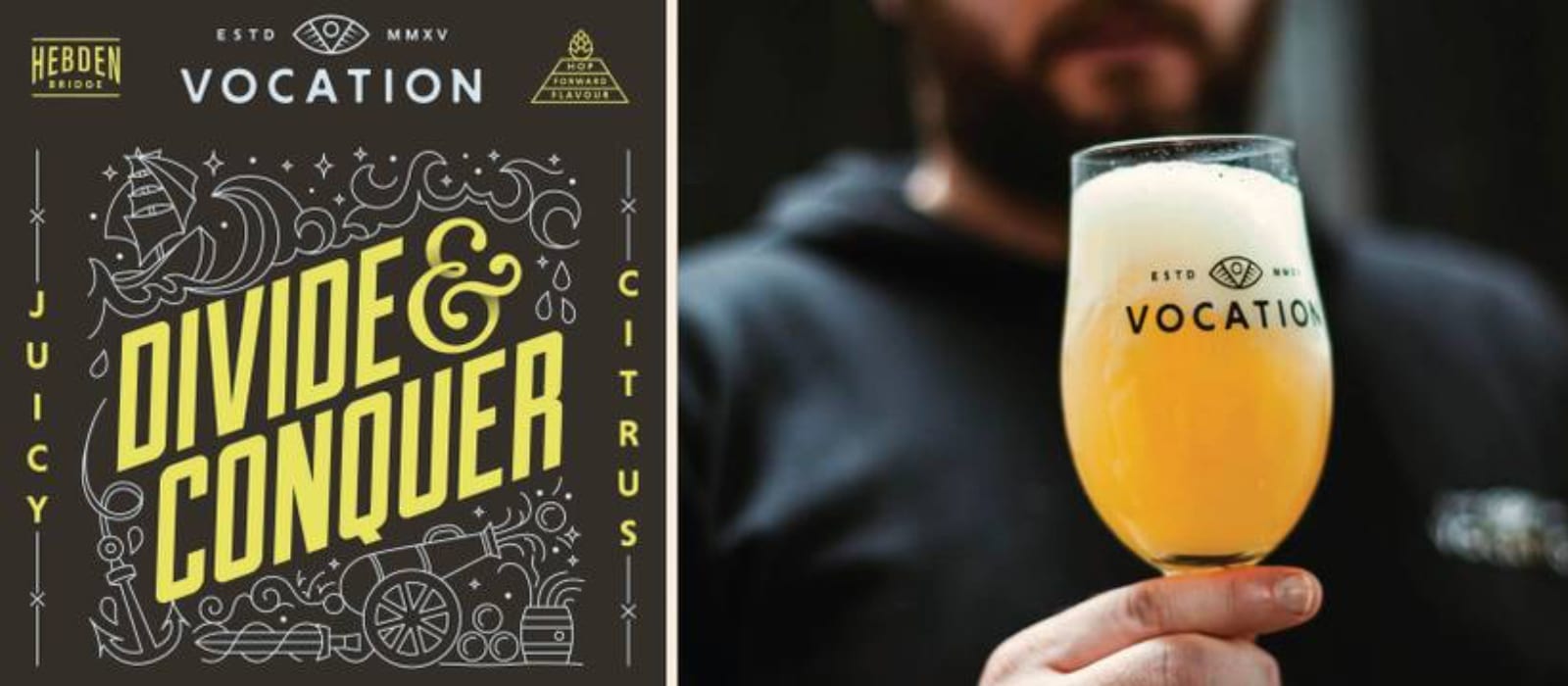
• • • Best IPA • • •
Divide & Conquer – Vocation Brewery
With one successful brewery venture already under his belt, Vocation founder John Hickling had both the experience and the resources to really knock it out of the park when he set up again in 2015, in the beautiful countryside of Cragg Vale, near Hebden Bridge.
The area itself is well known for its vibrant arts scene and fierce local character, which eschews chain stores or anything with even a whiff of corporate nonsense. John was clearly inspired by this culture, and determined to brew his beers in a manner of which his new neighbours would approve; not following trends, not courting acclaim, just getting beers into as many hands as possible and letting drinkers make up their own minds.
The core collection has become a common sight up and down the UK, but John has always insisted that capacity is kept back for more experimental, small-batch brews, which are always a hit among fans at the brewery’s two taprooms.
What the judges say: Pale ale has become a bit of a Cinderella category in recent years, which is why it always makes us happy to come across a pale that stands on its own, as something distinct from the IPA hegemony. The judging panel certainly wasn’t divided on this excellent New England pale. It leans heavy on the Mosaic, with characteristic lashings of mango and grapefruit, but it’s the Vic Secret which really makes it sing: passionfruit, floral notes and pine resin waft over the tropical base. A true stand-out.
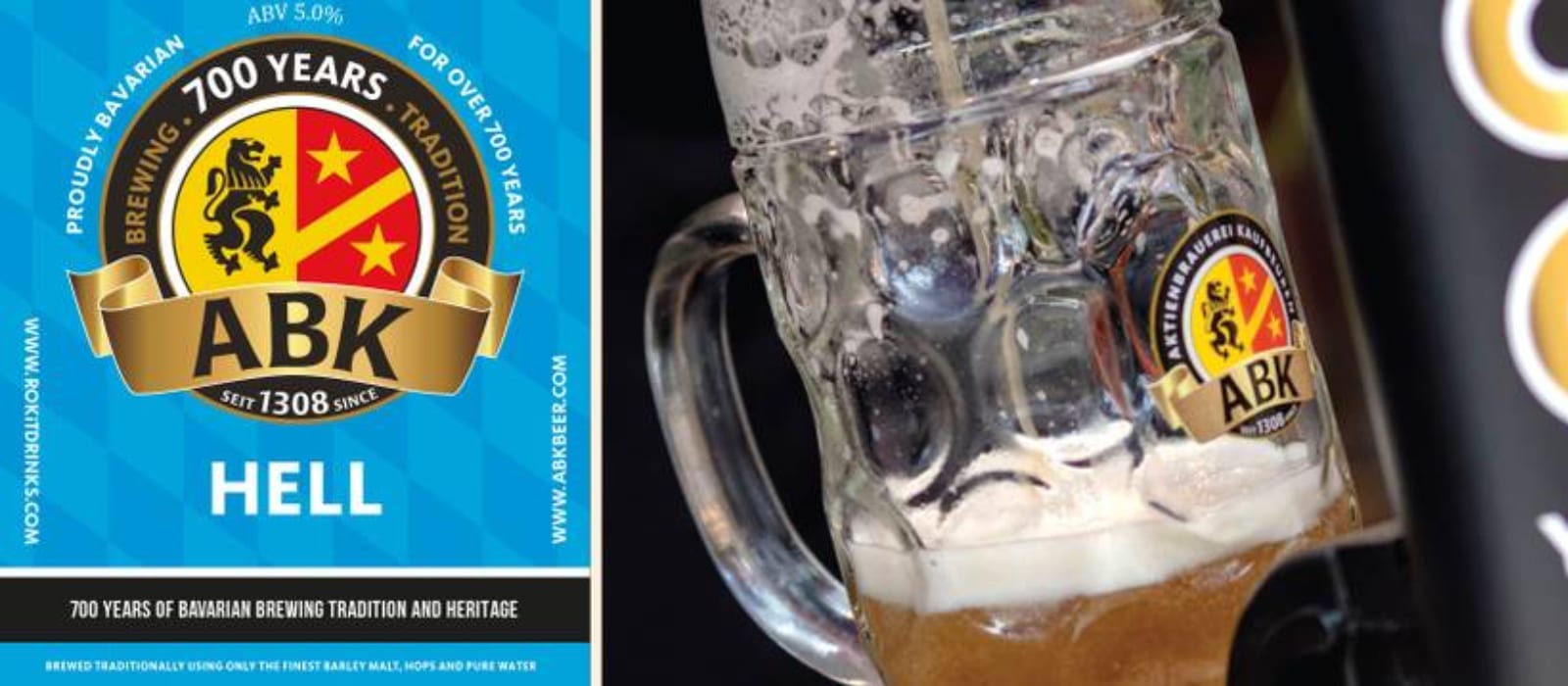
• • • Best Lager • • •
Hell Das – ABK
Surely one of the most intriguing stories we’ve heard in recent years, ABK is a very rare example of a beloved traditional brewery, bought out by ambitious drinks entrepreneurs and not ruined as a result. On the contrary, Jonathan Kendrick (JK) and John Paul DeJoria (JP) – both dyed-in-the-wool German beer fanatics – have done exactly what they promised: brought this superb Bavarian local brewery to an international audience with respect and integrity, bringing huge benefits to the local community and without compromising one iota on beer itself. Impressive.
As for the beer, it doesn’t get much more Bavarian than this. In 1325, the Kaufbeuren Brewers Guild declared that all beers produced in the town could only use the best hops and barley and ground-filtered local mineral waters. Bear in mind this was almost 200 years before the introduction of the Reinheitsegebot German beer purity law. Today, it still brews with its pick of the locally-grown Spalt and Hallertau hops and grains from the same local farms it has been using since 1308.
“Our Master Brewer Bernd Trick is one of the most experienced, knowledgeable people you’ll ever meet, and his word is law on these things,” says JK. “Nothing but top quality hops, barley and water, maturated for between six and eight weeks. There’s no other way to get that distinctive character.”
What the judges say: This is the flagship beer from a brewery that’s been cranking them out for the best part of 700 years, and it shows. Nothing is hidden or downplayed in this flavoursome lager. There’s pronounced malty sweetness to balance out the long, gentle, bitter finish, alongside breezy floral notes from the classic Bavarian hops. For fans of US-style craft who are sceptical about lagers, this beer might change your world.
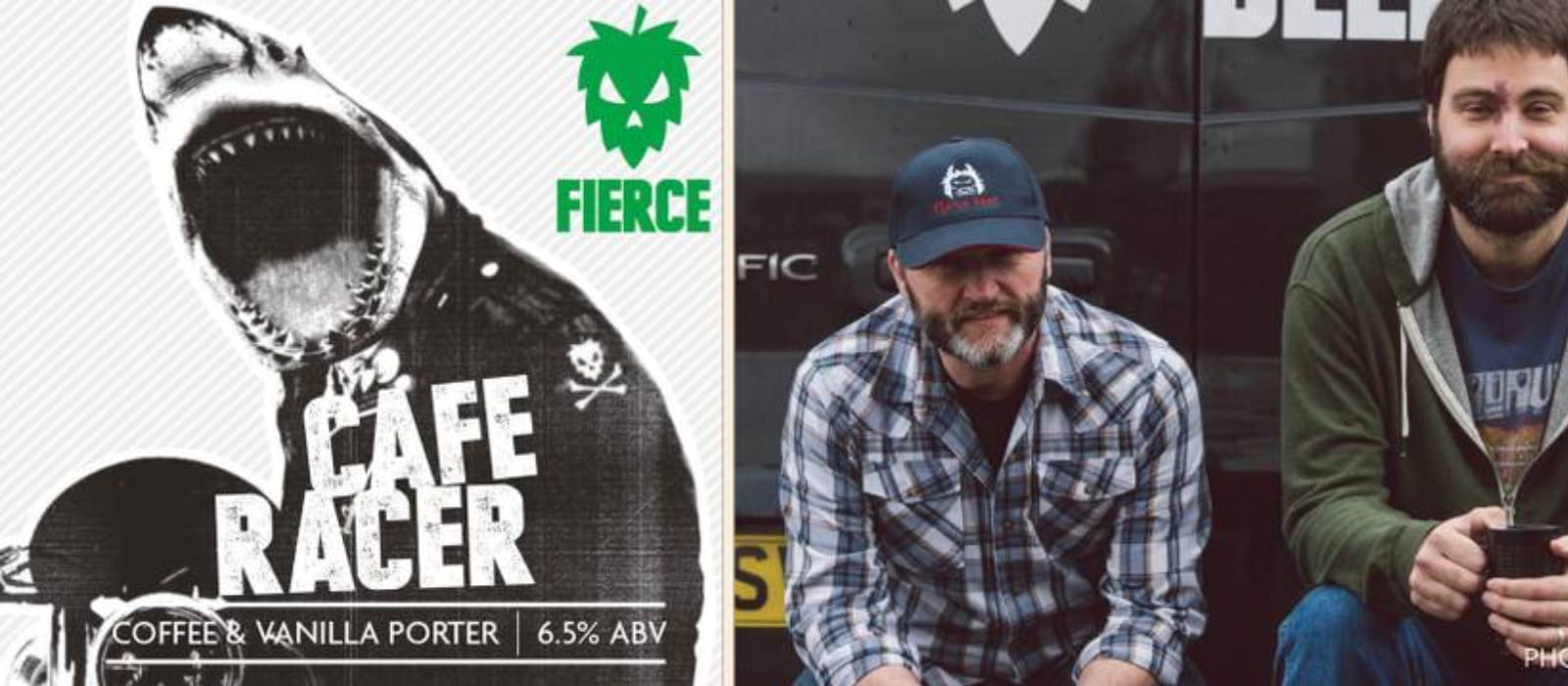
• • • Best Porter • • •
Café Racer – Fierce Beer
It’s hard for us to be objective about Fierce, as they’ve long been one of our favourite breweries, and they’ve opened an excellent bar not 10 minutes’ walk from the Ferment office. Dave and Louise Grant and the entire team behind this Stonehaven-based outfit are incredibly passionate about their beer, and were one of the first in the UK to take a foodie approach to their recipe creation, with intriguing flavour combinations and a real sense of fun.
Fierce’s flagship Day Shift IPA has been a Scottish craft staple for years, but it was probably the brewery’s supremely drinkable kettle sours and fruit beers, including Tropical Tart and Cranachan Killer, which introduced it to a wider audience.
With more bars opening across the UK, plus its own gin and a nascent barrel-ageing programme, it’s been great to see this Aberdeenshire gem emerge from the long shadow of its canine neighbours.
What the judges say: Yes, we’ve all enjoyed Café Racer for years, which in a way makes it easy to overlook. But when it came round the judging panel, we were all reminded just how exquisitely good it still is. Perfectly balanced layers of roasty, toasty, hoppy bitterness, a touch of chocolate, a touch of biscuit, silky mouthfeel and a tickle of condition. A real benchmark porter.
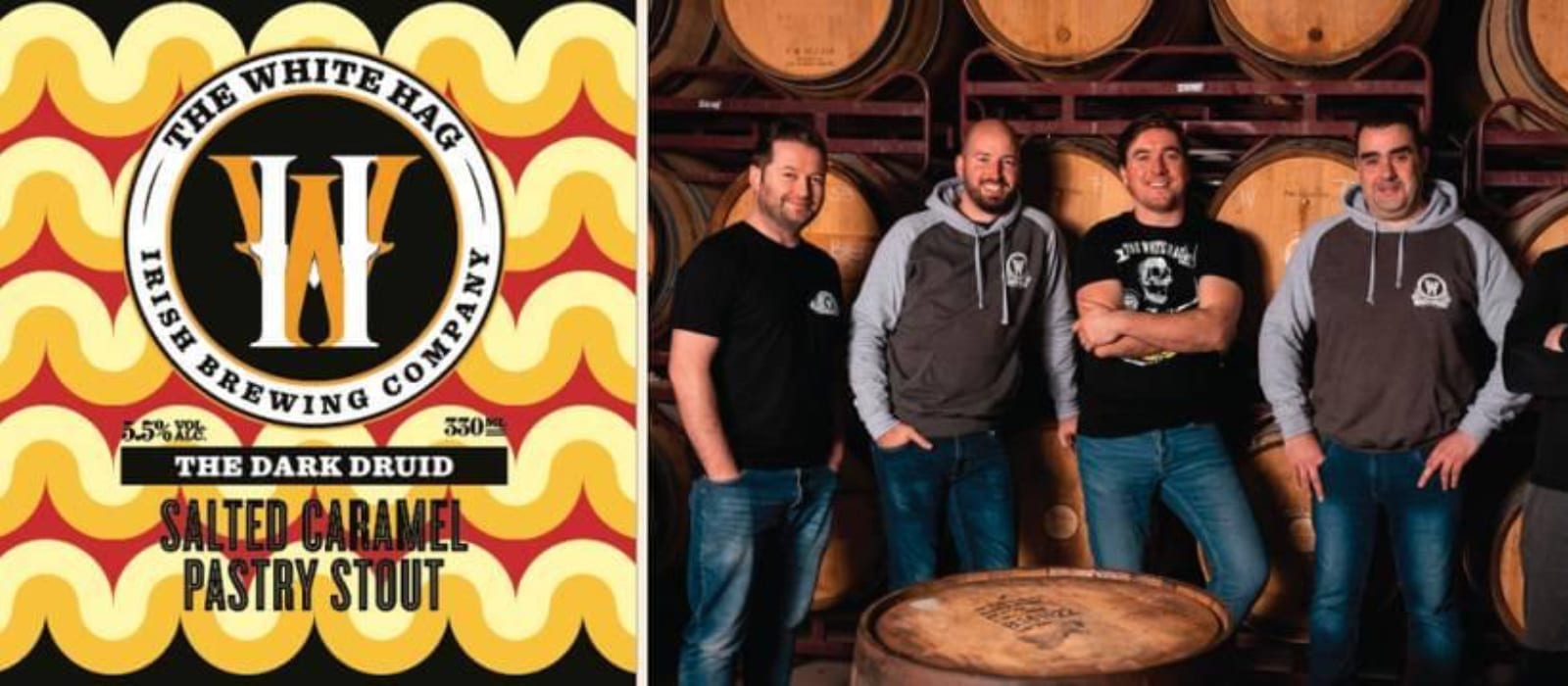
• • • Best Dessert Stout • • •
The Dark Druid Salted Caramel – The White Hag
We love working with Ireland’s White Hag, and not only because they happen to brew phenomenal beers. Founded by the gloriously named Bob Coggins in 2014, White Hag’s brewing is led by Joe Kearns, formerly of Ohio’s Hoppin’ Frog. Together, they’re a veritable powerhouse of creativity, and have grown White Hag into a powerhouse of progress in the Irish craft scene.
“Back in 2014 you kind of had this ‘holy trinity’ of red ales, pale ales and stouts, all at 4.2% abv,” recalls Joe. “When we launched, we had seven beers, including an imperial oatmeal stout at 10.2%. That was the strongest beer in Ireland at the time, but we had nothing under 5% – our IPA at 7.2% was probably the most accessible beer we had. From there we also created the Fleadh [a sour which uses heather instead of hops] which is a signature beer and set the pace.”
Today, the brewery is still known for its big beers and love of bold flavours, including its extensive and cultishly adored barrel-ageing programme. But it’s also moved with the times and ventured into lower-strength beers. It’s also very closely associated with its annual Hagstravaganza festival, which has become a must-attend event for craft enthusiasts across Ireland and beyond, with thousands of attendees and some top-draw breweries descending on the sleepy town of Sligo.
What the judges say: Dessert stouts always divide opinions, even among dark beer fans, but done well they’re absolutely sublime, and it’s no surprise that White Hag would nail it. This salted caramel offering was the first in its Dark Druid series of sessionable dessert/pastry stouts, and for us it hits the perfect balance: creamy, comforting and moreish, without becoming heavy, cloying or gimmicky.
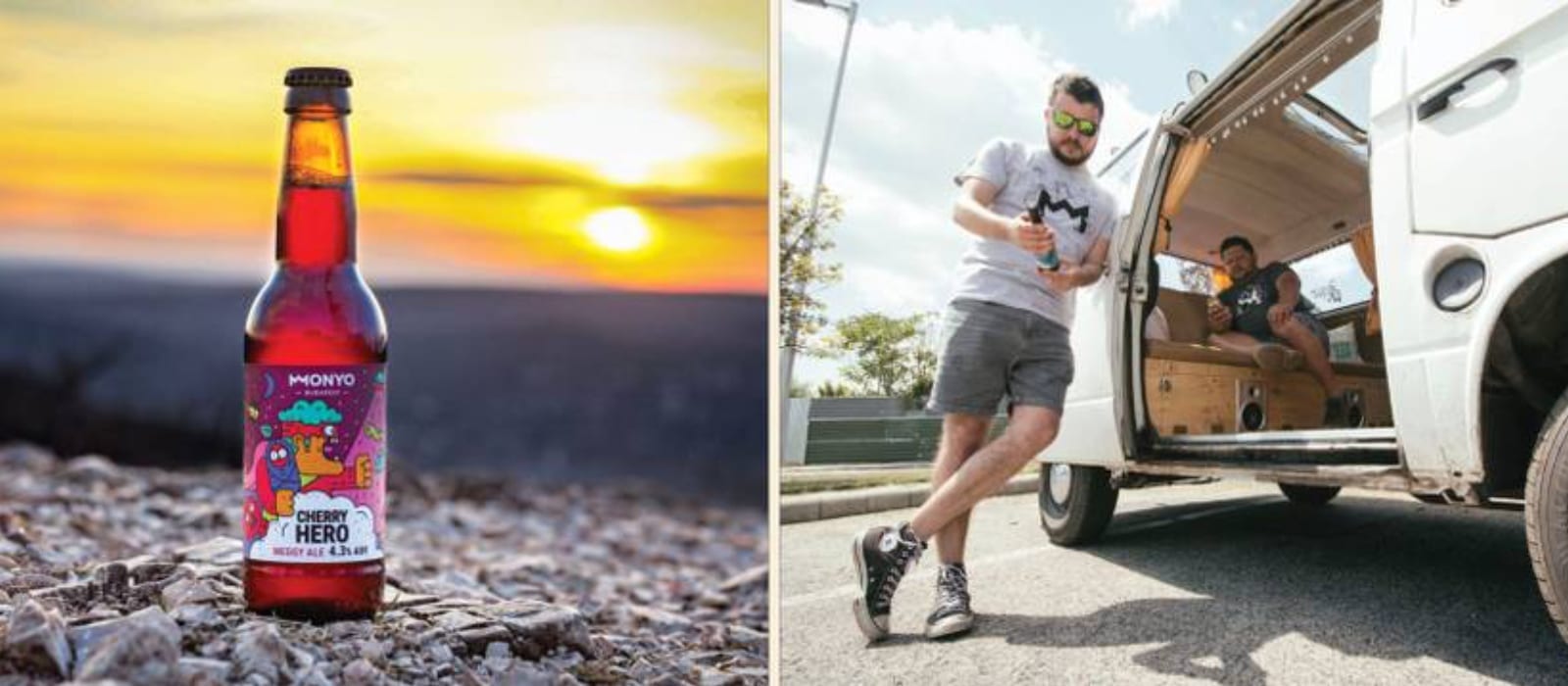
• • • One to Watch • • •
Monyo Brewing
Hungary’s Monyo brewing was founded in 2014 by Pein Ádám and Németh Anti, when Pein grew sick of trying to source quality beers to serve at his MONYO bar in Budapest’s Kalvin Square. When Pein set out to find his brewing partner, one name kept coming up from those in the know: Németh, one of the first home brewers in the country, who had gradually scaled up his efforts to the point of becoming a fairly large-quantity nomadic brewer, with a dedicated following in his own right.
Pooling all their assets and energy, it took six months for Pein and Németh to get Monyo Brewing off the ground. That was six years ago though, and the initial staff of just four has grown into a team of 13 and the number of bars has doubled. It has brewed more than 80 different types of beer, some of which have been exported outside of Europe to Mexico, Canada and even China.
The team has collaborated with big names from within the brewing world and beyond, even bringing in the Hungarian national goalkeeper Adam Bogdán to make a beer. It’s been to the most prestigious festivals in Europe, from Spain to Russia, and won numerous awards for its beers in foreign and domestic competitions.
But perhaps its proudest achievement is the community it has built around its beers. From fans naming their dogs after the brewery to tattoos of its iconic ‘Flying Rabbit’ character, there’s something about Monyo that inspires passion, loyalty and friendship.
What the judges say: Hungary has been a rising star of the international craft brewing movement for a couple of years now, and we’ve been pretty obsessed with the country since our ‘Down The Danube’ issue 18 months ago. Monyo was one of the breweries that really caught our attention at that time, and not just because of its eye-popping label designs. Its beers have all been superb, not just in terms of their quality, but also their inventiveness; Beer52 is always on the lookout for something new, and Monyo quickly joined that select group of breweries whose samples always cause excitement in the office.
That sense that Monyo is onto something really special has only grown over time, and we confidently predict it is destined to garner even more respect as it hits the international stage.
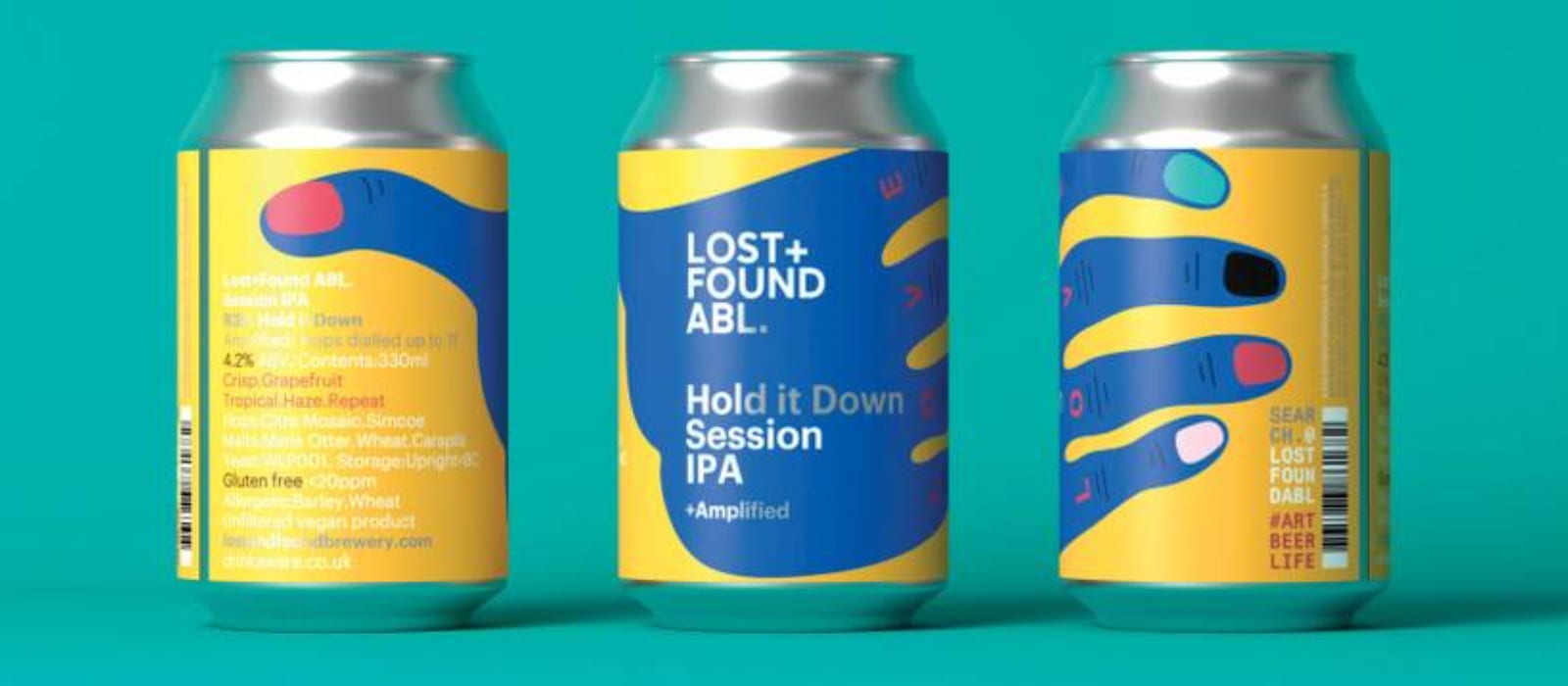
• • • Best Artwork • • •
Lost + Found AB.L:
Lost + Found A.BL: has always been a special brewery, respected by pros, admired by homebrewers and beloved of ordinary punters since it opened its door in 2016. Its story started, with a bored Simon Checkley pushing numbers in his corporate job, while Chris Angelkov was frustrated being constantly at the whim of his design clients.
The early days saw the pair brewing together on a very small scale after Chris’s wife Rachel realised they shared a passion for craft beer. Technically, this was home brewing as it took place in Simon’s garage, but the level of technical sophistication (and complexity) they quickly reached was more on a par with a large commercial operation. While arguably overkill at the time, it was an excellent foundation.
From there, Lost + Found went through a phase of gypsy brewing, co-located with another brewery and eventually moved on to work with one of the world’s most respected contract brewers. In this new chapter, Simon and Chris have been able to focus on pushing their experimentation on the recipe creation side and build on their growing export business.
It remains one of the UK’s most exciting and beloved breweries, and one of the few whose beers seem to get consistently better with each passing year, so it’s always a thrill to have its beers in the box.
What the judges say: There’s always been something so classy about Lost + Found’s label art. For many of us, that was the first thing that drew us to these beers, though we obviously stayed with them over the years because of the excellent brewing.
Whether it’s the stark minimalism of JuJu Juice, or the lush textures of its Roady IPA, Lost + Found’s artwork seems to have its very own design language, full of cryptically-placed typography and swirling geometry. There are messages here, surely, but ones only readable by machines, teasing and luring us like the blog posts of a conspiracy theorist. Maybe their creator, Chris Angelkov knows, but – just like the answer to what A.BL: means – he’s not telling.
The net effect though is one of total consistency. One design may be splodges of paint, while the next may be waves of visual static, but there’s no doubt which brewery they came from. As infuriatingly obtuse as it is, Lost+Found’s brand is a true original.
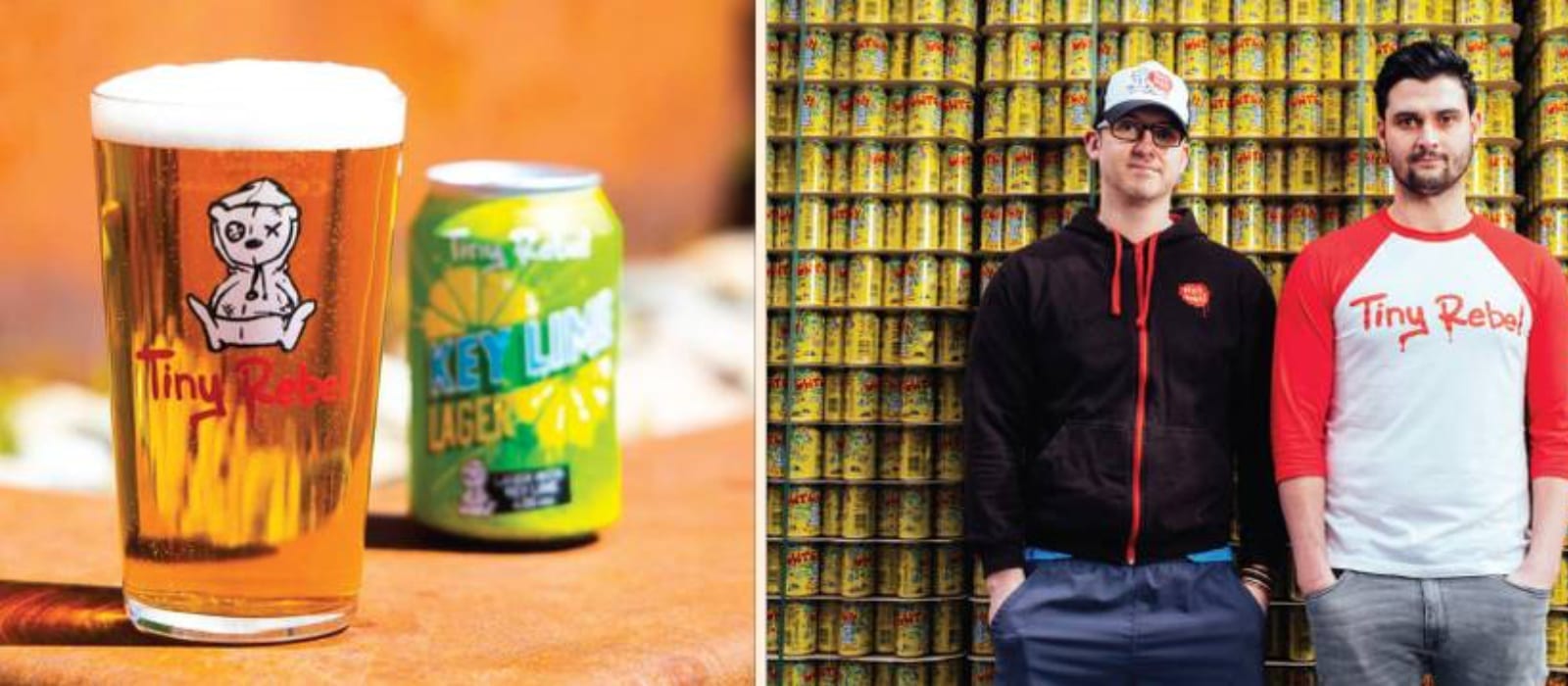
• • • People’s Choice • • •
Tiny Rebel
It would take a hard heart to dislike Newport’s greatest export, so we’re delighted to announce that Tiny Rebel have taken home our coveted People’s Choice award, based on your ratings across Beer52.com.
Established in Cardiff in 2012 by Brad Cummings and Gareth “Gazz” Williams, Tiny Rebel’s ascent to mega-stardom truly began in August 2015, when its flagship 4.6% red ale, Cwtch, took home the ‘Champion Beer of Britain’ at CAMRA’s Great British Beer Festival. At the time the youngest brewery to ever win the award, Tiny Rebel was barely able to meet demand, brewing cask after cask, to the exclusion of its many other great beers.
Thankfully though, it did catch up, and the rapidly growing business – which had added to its portfolio, as well as increasing its keg and can sales – moved into a snazzy new brewery in Newport in 2017, complete with taproom and tours.
With its distinctive graphic style and ubiquitous teddy bear motif, Tiny Rebel is a true household brand across the UK. Its flagship beers, including Cwtch, Clwb Tropica and Stay Puft, are familiar sights in bottle shops and supermarket shelves, while its specials and less well-known brews continue to delight craft fans new and old.
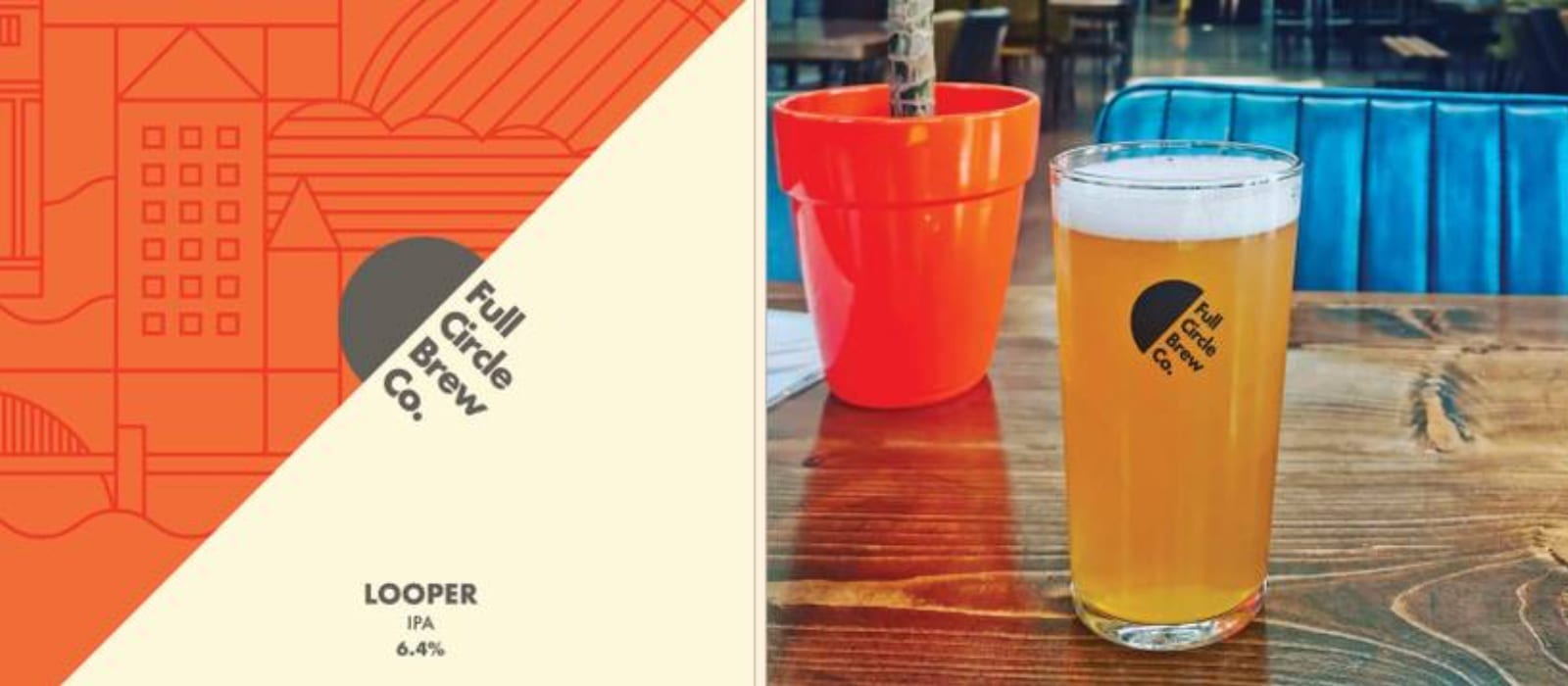
• • • Best Newcomer • • •
Full Circle Brew co
Hailing from the Byker neighbourhood of Newcastle, Full Circle Brew Co has only just celebrated its first year, yet has already wowed UK drinkers with several punchy, fun, yet sophisticated brews.
Founder Ben Cleary is (possibly literally) steeped in booze. His grandparents spent their lives in the beer and pub trade, while his parents moved more onto the wine side of the equation. Ben always felt he was destined to follow in their footsteps. Having run the hugely successful Pip Stop store for several years, he finally tipped in the direction of the grain, over the grape. You could say the family business had come full circle.
He started out working closely with current head brewer Alex, with a small one-hectolitre brewhouse at Lanchester Wines Co. slowly garnering recognition and respect from the area’s burgeoning micro-brewing community.
The decision to take Full Circle to the next level, with its own premises and tap room came shortly after an inspirational visit to the Crooked Can Brewery, whose mixture of modern and rustic setting really struck a chord with Ben. The brewery they created from this germ of an idea is strongly focused on the local community, with an emphasis on providing a warm welcome, simple, quality food and a venue for music and other events.
What the judges say: It’s often said that new breweries in today’s crowded market can’t get by on competence alone; that they need ‘one great beer’ to really put them on the map. In the case of Full Circle, this is Looper, an east coast style IPA that is so soft and juicy that even at 6.4%, it slides down on a pillow of zesty, grapefruit freshness that demands another sip. But there’s also real depth here, demonstrated by beers like its Meridian single hop pilsner, in which Hallertau Blanc is showcased with a clean, crisp bitterness and subtle elderflower and grapefruit notes.
The Best Newcomer category isn’t just about what a new brewery has achieved so far, but also the potential we believe it has in the future. Particularly in this respect, we couldn’t be more excited about Full Circle.
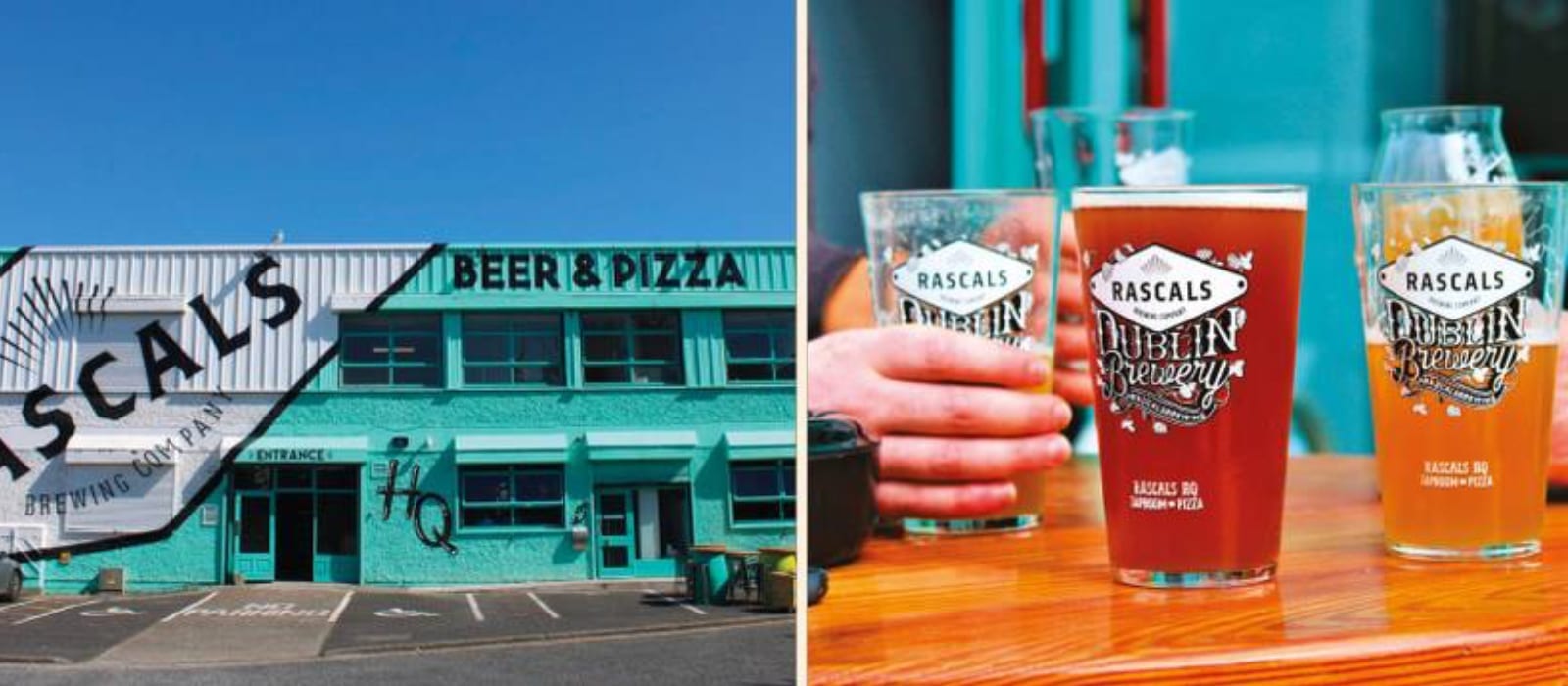
• • • Best Taproom Experience • • •
Rascals Brewing
Dublin’s Rascals Brewing Company has always been a fun, positive, inclusive outfit, and its taproom is a perfect reflection of this ethos. Co-founders Cathal O’Donoghue and Emma Devlin fell in love in a craft beer bar in New Zealand, and quickly began homebrewing together; a shared passion which blossomed into a crazy idea for a brewery of their own, back in their native Ireland.
Rascals earned its name with cheeky twists on classic styles, kicking off with an award-winning ginger porter, quickly followed by its White IPA, a classic American IPA crossed with a Belgian wit, which picked up gold in the 2016 World Beer Awards.
Sales manager Ger Callanan says: “Building up a few core beers has really helped us grow, but I guess people associate us more with the really bold, adventurous side, with fun designs and pun-tastic names. We release a new beer every six weeks, so try and keep the game moving as best we can, while keeping the bar as high as we can.”
While this spirit of boundary-pushing has undeniably helped Rascals make a name for itself, Ger argues that it was never really about attention seeking, but rather a reflection of Cathal, Emma and the entire team.
“We’re a young team running an independent micro-brewery; we are drinking beer, talking about beer and we have enough experience that we’re not afraid to take risks brewing beer. We’re not necessarily driven by what the market wants, so if we make a beer that doesn’t do so well on the sales side, we can hold our hands up but still be proud that it was a good beer.”
What the judges say: Rascals exemplifies a new generation of European taprooms, drawing very much on the American model, where breweries have for decades been establishing themselves as bona fide destinations for beer lovers, foodies and casual customers alike. This space isn’t an afterthought, cobbled together in an old storage room at the back of the brewery; it’s the shopfront for the whole enterprise, to the point that the snazzy 30-hectolitre brewhouse almost feels like a prop for the drinkers and diners to admire.
Just 15 minutes from Dublin city centre, the brewery and taproom are located in an old upholstery factory, overhauled in bright, welcoming brand colours promising beer, pizza and good times. And it most certainly delivers.
There are 15 taps of tank-fresh Rascals beer, including exclusive, limited edition brews created on Rascals’ new 250-litre pilot kit. For a brewery best known for its wild experimentation, this is in itself a draw, as fans claim the bragging rights associated with trying the brewery’s latest and greatest. There’s also a selection of genuinely excellent pizzas, baked in a wood-fired oven for all to savour.
The finish and decoration are top-notch, and really add to the atmosphere, particularly when the place is full. We were particularly taken with the feature wall made of cans, which Ger informs us were each painstaking stuck by hand (“we all thought it was a really cool idea, until we were all still there eight hours later”).
In an area of the city that’s still going through a lot of changes, Ger and his team have seen many of their neighbouring businesses struggle, so success from passing trade wasn’t guaranteed. As well as ensuring a great experience in the taproom itself, Rascals has put a huge amount of effort into engaging with the local community and building its brand on social media and review sites. The result is a really exciting mix of customers, including regular locals, and passionate beer tourists from the UK and US.
It’s a combination of all these factors – great beer, great food, aesthetics, atmosphere and an energetic approach to drawing in new customers – that makes Rascals our best taproom of 2020.
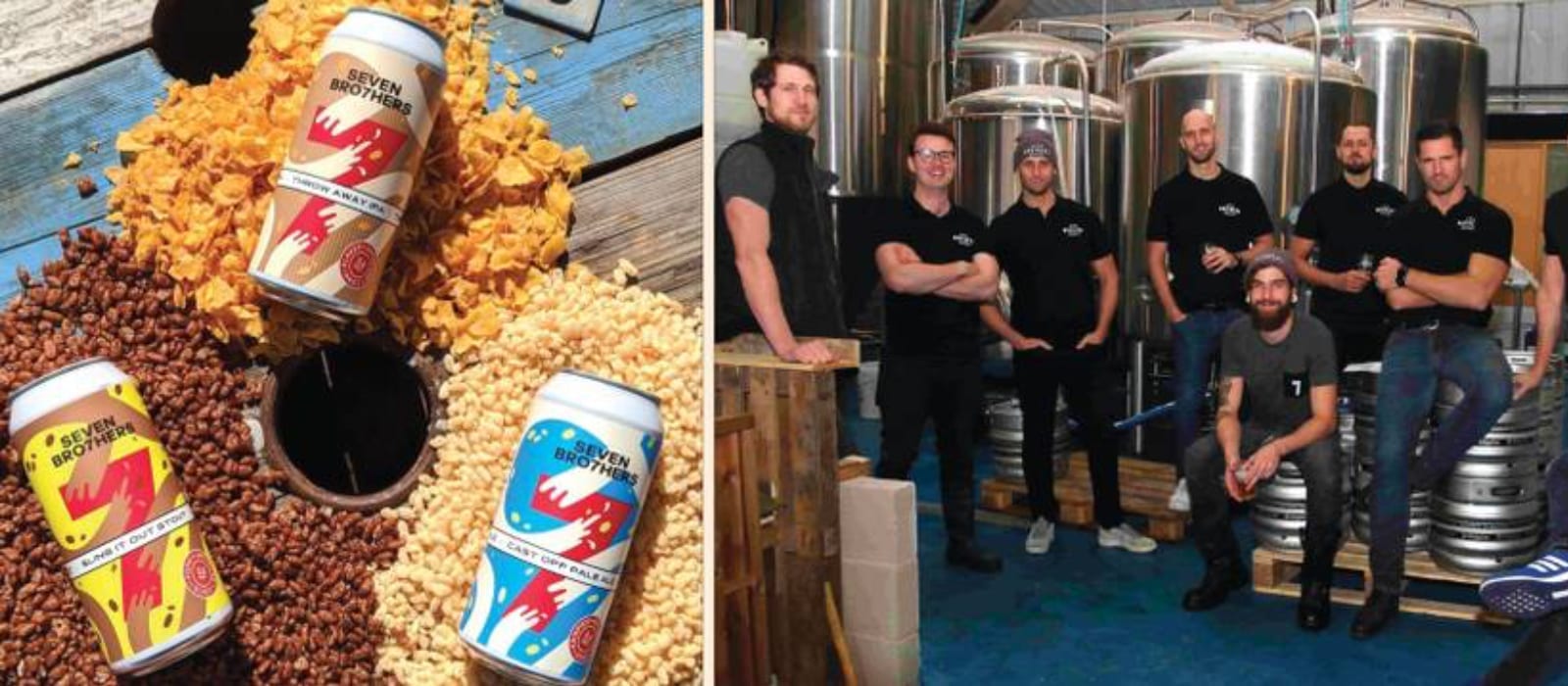
• • • Collaboration of the Year • • •
Seven Bro7hers x Kellogg’s – Seven Bro7hers
We love collaborations. At their best, they are an opportunity for brewers to learn from each other, send creative sparks flying and, at the very least, have a bit of fun. But it’s very rarely that a collaboration will surprise us, as this pairing between the awesome, Salford-based Seven Bro7hers and noted purveyor of breakfast cereal Kellogg’s has absolutely done.
It’s also been educational: we had no idea, for example, that a proportion of the grains supplied to Kellogg’s don’t quite make the grade for inclusion in their cereals. They’re still perfectly fresh and tasty, but apparently don’t meet the strict aesthetic criteria.
It’s these ill-fated grains that have been given a second chance through Seven Bro7hers three special collaboration beers. Specifically, unloved Rice Crispies replace some of the malted barley in the brewery’s Cast Off Pale Ale, spurned Corn Flakes take the place of wheat grain during the mashing of Throwaway IPA and ostracised Coco Pops stand in for some of the barley in Sling it Out Stout.
For those wondering, yes, the brewery is run by seven brothers, and it’s a family business through-and-through. The chaps credit their father Eric with setting them on this path, who was blessed with seven sons and four daughters, a house with a cellar, a brew kit and – one can only assume – a very understanding wife. As each of the children hit 18 their first legal pint was a glass of Eric’s beer, a rite of passage that held real significance in the family, and cemented a lifetime love of ale.
After pursuing various different educational and career paths, the brothers – Guy, Keith, Luke, Dan, Nat, Kit and Greg – came back to their long-standing dream of starting a business together, and brewing was the obvious choice. Seven Bro7hers finally started brewing in 2014 and has been steadily growing ever since, expanding its brewery and adding two excellent bars.
All very well, but what about the sisters? Don’t panic – they didn’t escape the family obsession, but chose to direct their boozy passion into distilling instead, producing fantastic gin under the Four Sis4ers moniker (www.sis4ersdistillery.com). Eric must be so proud.
What the judges say: Seven Bro7hers itself has been a great discovery for us, and members particularly enjoyed the mind-boggling honeycomb IPA that featured in our recent Cyberfest 3 online event.
The Kellogg’s beers are mercifully great, and the whole thing has also been executed with real sense of fun, significantly raising the brewery’s profile with coverage in the national press. In a world where collaboration has arguably become the norm rather than an exciting event, Seven Bro7hers has found an environmentally friendly way to add some snap, crackle and pop.
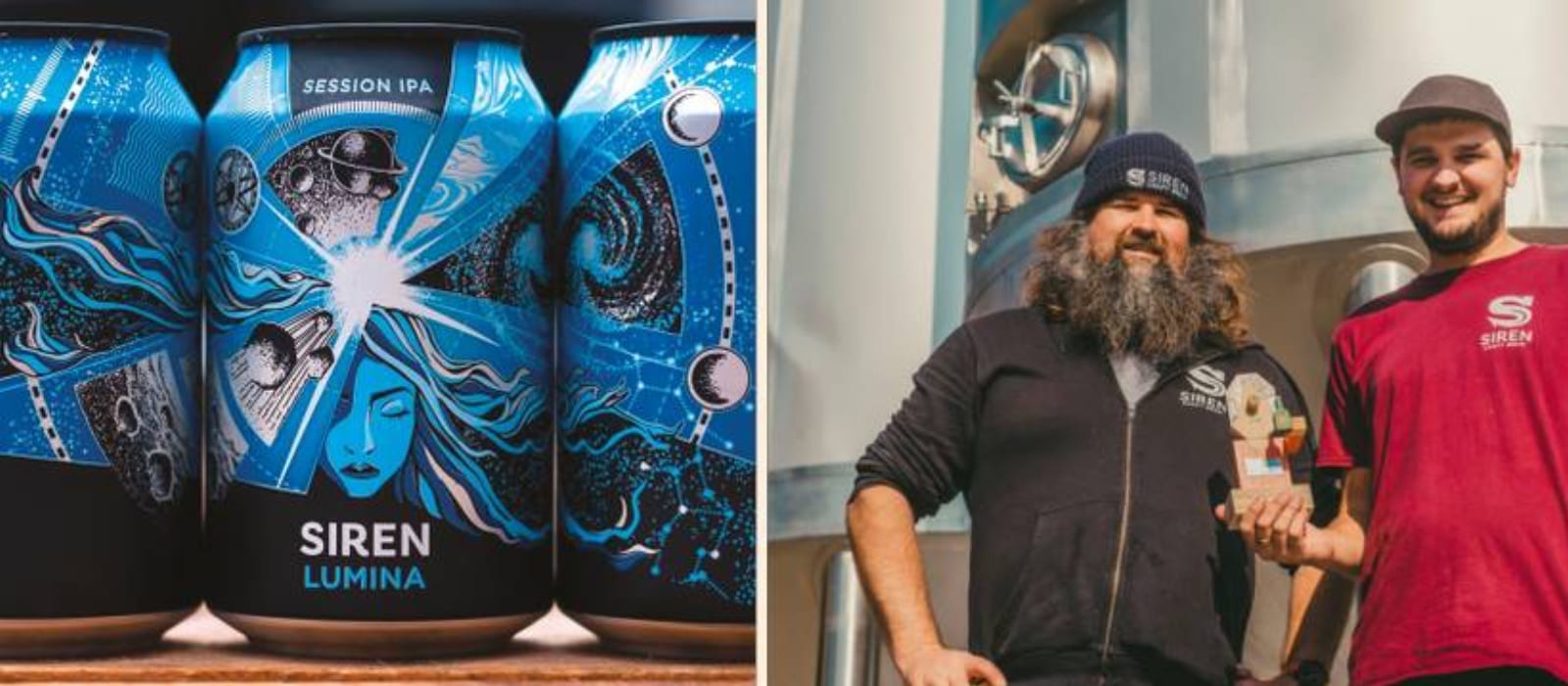
• • • UK Champion Brewery • • • SILVER
• • • Best Session Beer • • •
Siren Brewing – Lumina
Any long-standing Beer52 subscribers will already be familiar with Siren, but for the uninitiated, this Berkshire-based brewery, established in 2013, is a true mainstay of the UK craft scene. It’s reputation for big, bold, flavoursome beers – often using unusual natural ingredients – barrel ageing, and daring collaborations with the world’s best breweries.
Arguably, this is the secret of its success: Siren has always put its money where its mouth is. Where some other breweries pay lip service to their ingredients, Siren spends big on raw materials and has a zero-tolerance approach when it comes to quality. Its production schedule is also relentless, averaging two new beers each week, alongside its rock-solid and beloved core range.
What the judges say: With 85% of its pre-Covid business coming from on-trade sales, lockdown could easily have been the end of Siren. Instead, it’s adapted and – even in the depths of lockdown – was able to keep around 60% of its people working. Founder Darron Anley and his team swiftly pivoted to web sales, which grew around 1000% overnight, and which Darron now anticipates being a larger part of Siren’s business than it was before. He’s also diverted resources into building relationships with the independent bottleshops, which has always been “a bit of a weakness”.
On top of this radical change of trajectory, Siren has also chosen lockdown as the ideal moment to launch a brand new beer in its core range. Lumina is Siren’s take on a juicy, slightly hazy IPA, and even in the somewhat congested market for this style, it’s an absolute stand-out (very nearly picking up our award for Best IPA).
Nimble enough to ride out an industry-wide catastrophe, yet assured enough to do things at its own pace where innovation and quality are concerned, Siren is a real gem, and a deserving winner of our UK Champion Silver award.
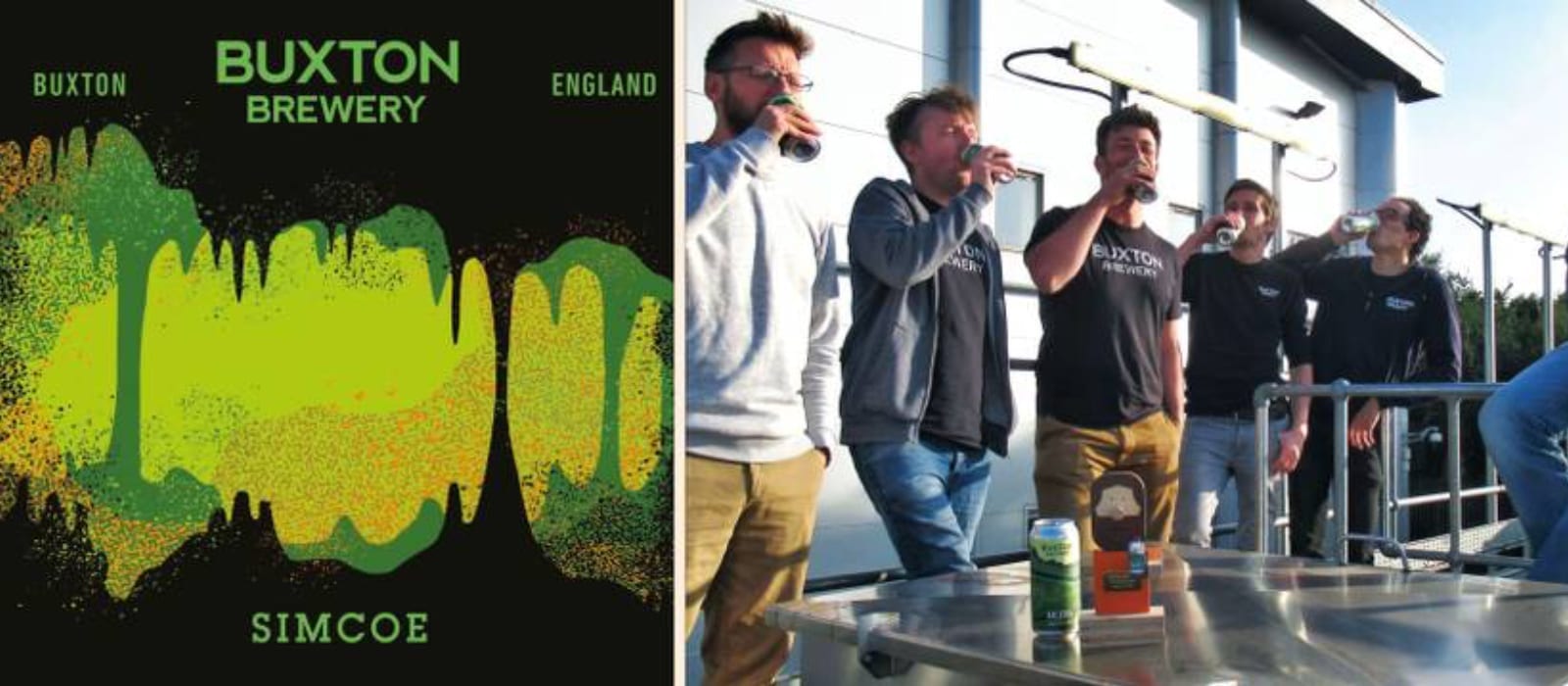
• • • UK Champion Brewery • • • GOLD
• • • Best Session Beer • • •
Buxton – LupulusX Simcoe
Buxton make good beer. It’s a simple point, and a true one. Their ethos of making “tasty, aromatic, full-flavoured craft beers” is a nod to tradition; of good pints in good pubs after a good walk, maybe even in the company of a good dog. But they don’t just make beer for the countryside they’re surrounded by, even if that’s also a big part of their inspiration.
In 2009, Buxton Brewery started the year right, and mashed in on 1 January, on its 40l kit in its first brewhouse – the family garage. Now operating on a 7000 square foot custom-designed, British-built brewhouse, the team creates around 3500 litres per delicious brew, three times every week.
Its tap room in the Old Court House in the centre of Buxton has become a must-visit destination for beer lovers too. A beautiful historic building with brick-vaulted ceilings, it’s got that old-school pub vibe you’re looking for with all the sliders, nachos and craft beer you want. Basically, they know what they’re doing.
On top of all this, Buxton has collaborated with some of the beer world’s hypiest beasts, and created beers that have flipped the scene on its head. So how does a brewery nestled so deep in the mossy woodlands of Derbyshire become such a staple of an ever-changing, ever-growing beer scene? We asked owner Geoff Quinn.
How has Buxton Brewery evolved? What would you say have been your biggest shifts?
Well, apart from the obvious COVID-19 difficulties that we’ve all had to cope with recently, we were already well into the final years of a three-year plan, which has culminated in the installation of a fancy new high speed canning line. We were pretty much 100% cans when COVID-19 hit, minutes after our canning line was commissioned! Now our cans are in some supermarkets, but despite all that we’re still relatively small — our annual production will still be less than 5000hl. Also in August we lifted out our brewhouse and replaced it with a nice new shiny one. So there have been quite a few changes around here!
What inspired you to create your single-hop programme LupulusX?
We wanted to showcase our favourite hops, and our intention was to allow the spotlight to shine on one individual varietal in each iteration — nothing new there conceptually, and we’ve done plenty of single-hop beers in the past. This series, though, is a continuous expression of the same beer, with a different star hop each time.
We’ve really enjoyed doing it. I love the results and the feedback we’ve got has been brilliant. We’ve brewed 12 variations now, and there’s plenty more to come.
Why did you choose “Ahtanum” to sit alongside more famous hops like Simcoe, Mosaic and Citra in the range? What is it about this one you like?
Ahtanum had appeared in some pretty influential beers we at Buxton have all enjoyed over the years, and we thought it, like the others in the series, deserved its own time to shine. It sits nicely between the pine/citrus border and brings a lot of character to the beer, especially when single-hopped to the level we’ve utilised it. It’s aromatic and flavourful so it was a no-brainer to LupulusX it!
There’s a real pull towards your local area’s landscape in your core range. Are you outdoorsy as a team? How did you come about choosing names like “Shelterstone”?
We are surrounded by the Peak District National Park, and most of the team are indeed quite ‘outdoorsy’ – the local landscape means world class climbing, hill-walking, mountain biking, road biking etc. are all right on our doorstep. I come up with a lot of the names of the beers, as they have a real sense of meaning and place to me and I can draw memories from great days out with friends and family on all these outdoor themed beer names.
Also, who designed these new-look cans? They look great! What was the brief like and how did that evolve?
A couple of years ago we parted company with our previous designer – a one man consultancy based in Oregon, US. Nick Wagner had worked with us for five or six years and really helped develop our current ‘look and feel’. His own rapidly expanding portfolio of clients and our own increase in design work meant, inevitably, along with the time difference and remote working issues that we’d have to look closer to home for a design partner. We are now working really well with IWP, a design firm based decidedly closer, in Bollington. They have picked up the baton where Nick left off and are driving our creativity forward now with fresh and exciting interpretations of our ideas.
Some of your collaborations have made you world-famous — like Yellow Belly. But what is it that makes a Buxton beer a Buxton beer?
We always say that attention to detail and high drinkability — whatever the style — are the driving forces behind all of our beers, and we work hard to achieve this. It’s a continuous (and exhausting) effort that ensures that. It’s exciting to experiment and create new styles and push boundaries. However, a simple Kellerbier or a classic British Bitter are as much a part of what makes Buxton the brewery it is, as much as the huge Imperials and Barrel Aged monsters we love to unleash.
What do you enjoy about collaborating? Have you got any big collab ideas post-Covid?
I think all brewers love collaborating — it’s a natural extension of the joyous job they already love doing! True collaboration, where folk come together and work on a recipe and discuss the deep technical details, the design, the processes; define a clear brief for a new beer to be created out of nothing but an idea is a genuinely great thing. We’ve done a fair few collaborative beers, but we always work with other brewers that we’ve taken the time to get to know, become friends first, learn about and enjoy each other’s beers, and then look at what, together, we could achieve.
Post COVID plans are in the pipeline, but that pipeline is of unknown length, and we just hope we all come out the other end in a position where we can start working together again, soon.
What’s in store for the future?
More of the same – signature Buxton brews in all the styles we love. We’re working hard on our barrel ageing program. We’ve got exciting plans for our places in Buxton. The ‘new normal’ and the new future of beer, pubs, drinking culture and brewing in general are all a bit of a mystery, so it’s hard to answer any more specifically than that. Ask again in a year or so.
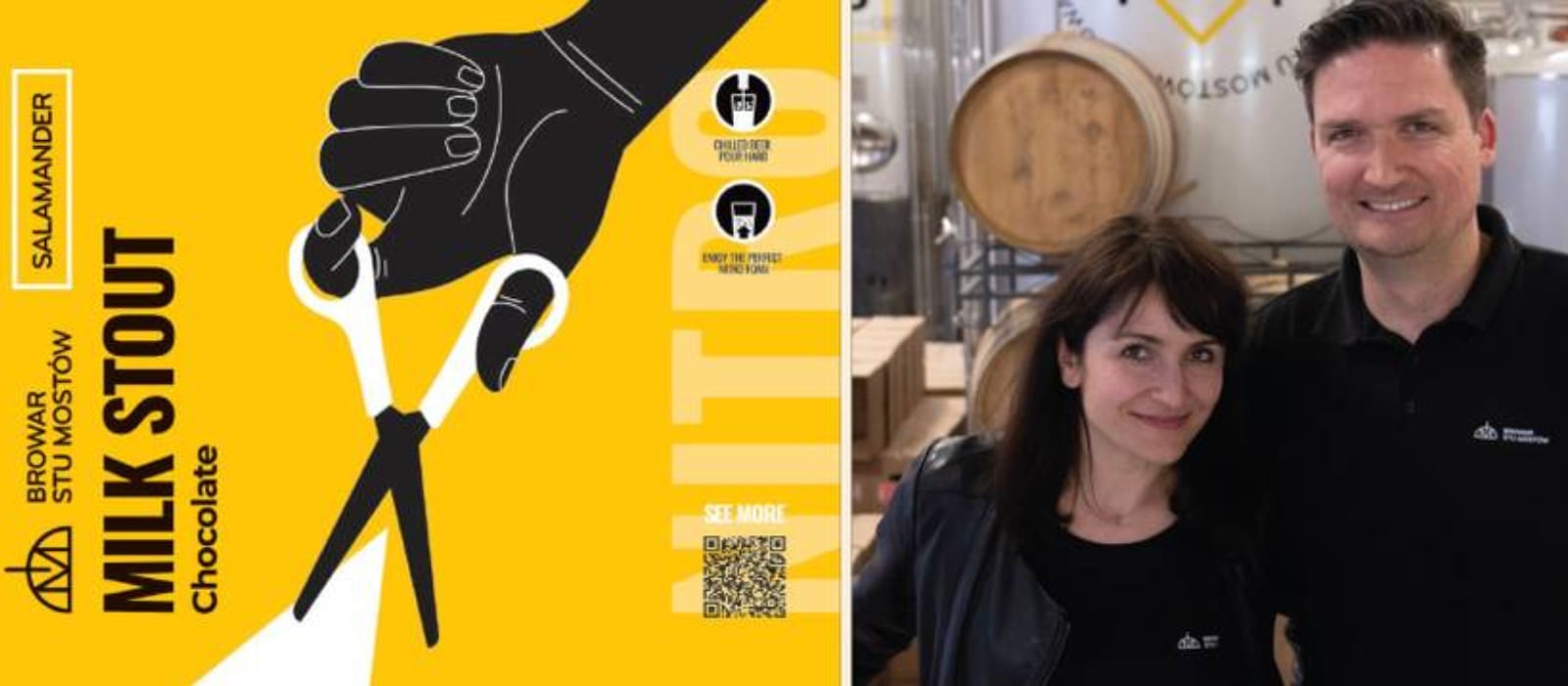
• • • EU Champion Brewery • • • Silver
• • • Innovation Award • • •
Browar Stu Mostów – Nitro Series
As befits a brewery based in an old cinema, Stu Mostów has been great fun to watch over the past few years. Its founders, husband and wife team Greg and Arletta Ziemian, have taken the brewery from its home market in Wrocław, Poland, to achieve international acclaim, through their tireless work on the festival circuit, collaborating with international peers and – to be honest – generally being lovely.
Stu Mostów’s range splits into three distinct lines: Black-labelled WRCLW – classic styles with no unnecessary adornments – yellow-labelled Salamander – modern, hop-forward beers for the US-inspired craft crowd – and finally the ART collaboration line, created with visiting breweries from around the world.
What the judges say: A lot has changed since our first visit in 2018. The brewhouse floor is considerably more crowded, the awards cabinet a lot more full, and an exciting new barrel ageing programme is in full swing. One thing that hasn’t changed though is Stu Mostów’s innovative approach, which is the main reason it’s scooped this year’s EU Champion Brewery gold award.
We’ve been particularly impressed with its line of nitro stouts and porters; although nitrogenating dark beers for an extra smooth mouthfeel isn’t a new idea, Stu Mostów has developed its own technique which gives a noticeably different result to other nitro beers we’ve tried. This feels even less like carbonation – there’s very little ‘tickle’ – and gives more creamy smoothness.
During that very first visit, head brewer Mateusz Gulej promised us that in 20 years’ time it would be the best brewery in the world. Just two years later, that’s starting to look like a rather conservative estimate.
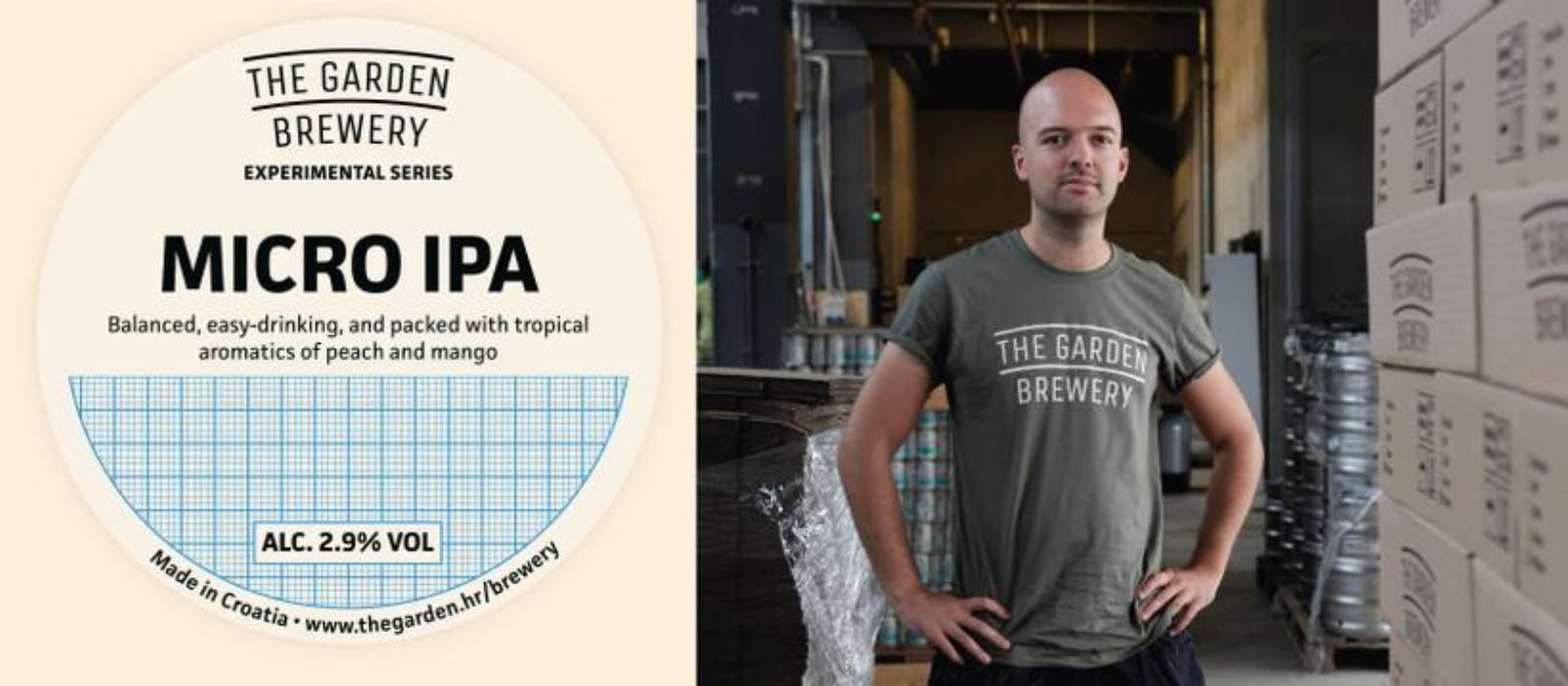
• • • EU Champion Brewery • • • GOLD
• • • Best Low ABV • • •
The Garden Brewery – Micro IPA
The Garden Brewery arose from a simple idea, when a well-known organiser of music festivals and events decided he could improve quality and save money by brewing his own beer. Fast forward four years, and the events business is still going strong, but Zagreb-based Garden has grown into something of an empire in its own right, with multiple bars across Croatia and an ever-growing portfolio of internationally award-winning brews.
The brewery itself is impressive, with a locally manufactured brewhouse, custom-designed to meet head brewer Tom’s specific requirements on flexibility and control. Similarly, its in-house laboratory, overseen by ever-vigilant biotechnologist Marta, is kitted out to a much higher specification than most other breweries of this size.
This may all seem a little boring from the beer lover’s perspective, but these are the things that allow Garden to brew such exciting beers, to such a consistently high quality. And when they’re in the hands of revellers partying along Croatia’s beautiful Adriatic coast, it’s the beers themselves that really tell the story of this brewery.
What the judges say: The Garden has become a regular fixture in Beer52 boxes since it first appeared in our Down the Danube box, and with good reason. Moreish, exceptionally drinkable, yet sophisticated and often surprising, Garden’s approach epitomises so many of the trends in European craft brewing just now. We’re constantly impressed by its innovation and quality, and member reviews confirm you guys feel the same way.
In awarding Garden this year’s EU Champion gold award, we’ve decided to single out its exceptional Micro IPA; a 2.9% brew that somehow manages to pack in a massive body and multi-faceted hop character, with grapefruit zest, peach and mango. It’s a master class in technical brewing, that also happens to be 330ml of pure fun.
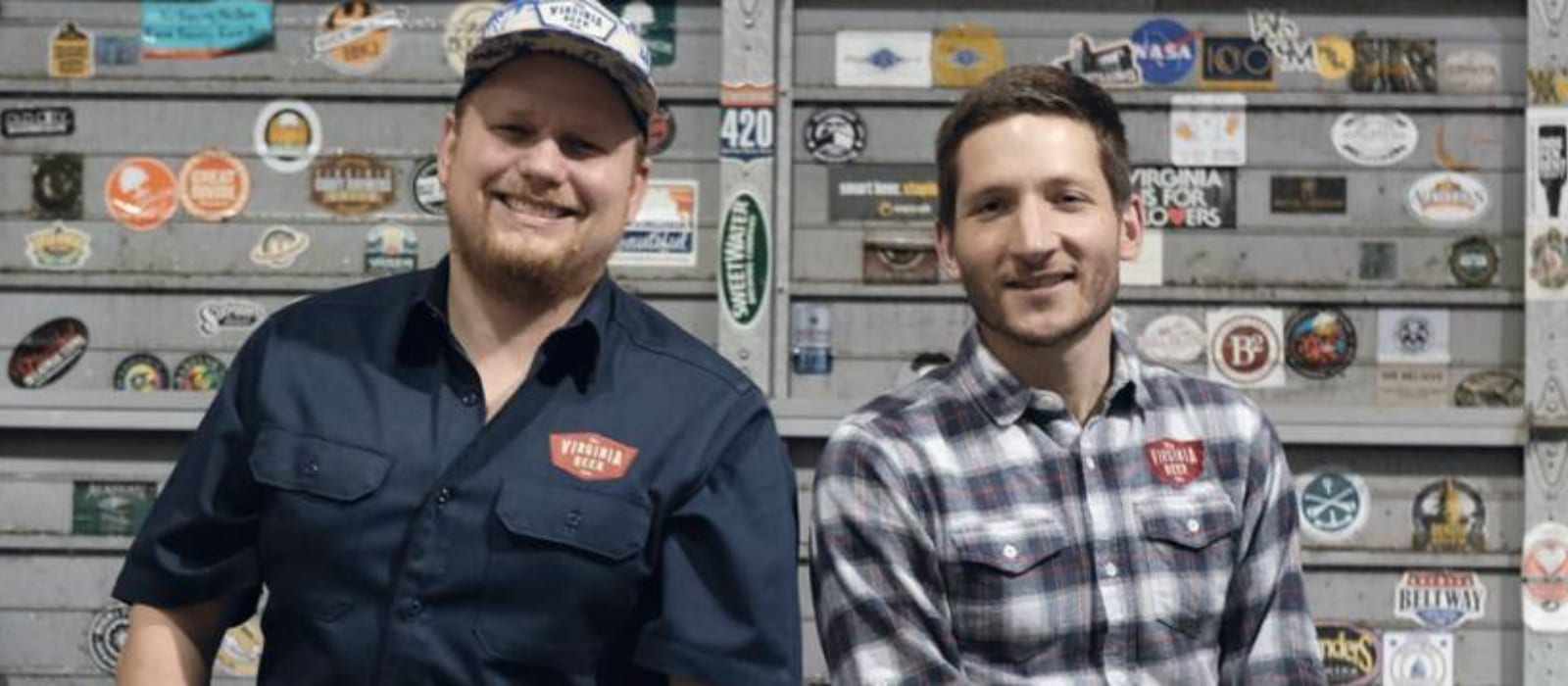
• • • US Champion Brewery • • •
The Virginia Beer co
In 2004, Chris Smith and Rob Wiley were drinking buddies at college in Williamsburg, Virginia, until they parted ways after graduation to follow their dreams. But their chosen careers weren’t all they had hoped, and each began home brewing at night to scratch a creative itch; a hobby that steadily gained momentum until, in 2012, the pair decided to travel together to the Craft Brewers Conference in San Diego, California. It was here that their plans solidified, with a vow to jump the track and go in together on a new brewery venture in the place where it all started, Williamsburgh.
The Virginia Beer Co is a gutsy name, for a gutsy brewery. Together with brewmaster Jonathan Newman, formerly of Sweetwater Brewing Company in Georgia, Chris and Rob have set their sights high from day one. They invested in a large brewhouse which is flexible enough to scale from high-tempo production brewing to experimental small-batch beers, resulting in an eclectic line-up, ranging from hazy east coast IPAs to ultra-traditional British styles, to Italian-style pilsners.
With its motto ‘beer, people, purpose’ it’s unsurprising that The Virginia Beer Co is tightly bound to its local community, and gives a lot back. Part of the reason Rob and Chris became so disaffected with their pre-brewing careers was that they didn’t feel they were really contributing.
“One of the things that always drew us to craft beer was that you could be a community based business, and impact the people around you in a positive way,” says Rob. “So that was a huge pillar in our plan. I think it’s what we’re recognised for, besides the beer of course. We work with charities constantly, giving money, beer and time. And that extends to our own team here; we try hard to be a good employer and make sure everyone who puts their trust in us really wants to come to work each morning.”
What the judges say: It’s easy for breweries like Virginia Beer Co to be overlooked in the US. They’re serving their local market, about which they’re extremely passionate, and building their business through grass roots support and loyalty, rather than cultivating hype. Most importantly though, Chris and Rob’s beers combine drinkability and accessibility with total integrity; they follow their own interests and seek only to brew the best possible version of every style they tackle, without adding bells and whistles. This kind of brewery is built to last, and we are proud to make them this year’s US Champion.
Article Source – Ferment
Come on In!
SUN - THURS
12:00pm - 11.00pm
FRIDAY
12:00pm - 11.30pm
Saturday
11:00am - 11:30pm
Last order 30 mins before closing
Contact US
Phone Us
07477 495 015
Email Us
Address
124, High Street, Rickmansworth,
Hertfordshire, WD3 1AB
